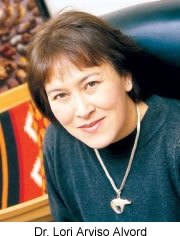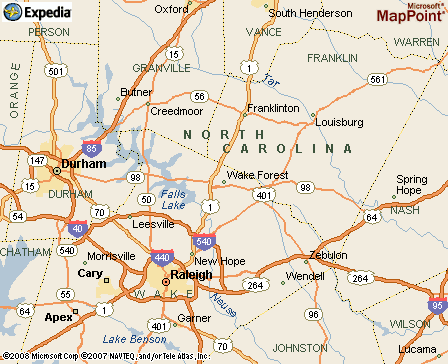 |
Canku Ota
|
 |
|
(Many Paths)
|
||
|
An Online Newsletter
Celebrating Native America
|
||
|
December 1, 2008 - Volume
6 Number 3
|
||
|
|
||
|
First Navajo female
surgeon among speakers at WFU event celebrating
American Indian History Month |
||
|
by Wake Forest University
News Service
|
||
 Wake
Forest University will celebrate National American Indian and Alaska
Native Heritage Month by hosting “Native American Voices,” a symposium
featuring five nationally-renowned American Indian leaders who will
discuss how they have broken through cultural barriers to achieve
their success. Wake
Forest University will celebrate National American Indian and Alaska
Native Heritage Month by hosting “Native American Voices,” a symposium
featuring five nationally-renowned American Indian leaders who will
discuss how they have broken through cultural barriers to achieve
their success.
The event, which is sponsored by Wake Forest’s Office of Multicultural Affairs, will be held at 5 p.m. Nov. 14 in Greene Hall, Room 145. It is free and open to the public. A reception will be held following the event. The featured speakers will be:
“Through the lens of autobiography, these highly accomplished American Indian leaders will describe their own journeys and the opportunities and challenges unique to American Indians,” said Ulrike Wiethaus, professor of religion and American ethnic studies at Wake Forest. The event was initiated by Wake Forest junior Lucretia Hicks, a Cherokee and founder and president of Wake Forest’s new Native American Student Association (NASA). Wake Forest has 16 American Indian students enrolled this year. Hicks established NASA with the help of seven other American Indian students and the Office of Multicultural Affairs. She plans for the organization to host events, like the symposium, to help encourage and support American Indian students on campus, recruit American Indian students to Wake Forest, and expose people to and educate them about American Indian culture and issues. “It was such a culture shock for me when I came to Wake Forest because I had always been part of really small communities where I had other Native people around me,” said Hicks. “Other people here are shocked when they found out that I am Native American. They forget that Native Americans still exist. Then, they often ask me questions that reveal how they generalize and stereotype Native Americans. Not everybody has totem poles or lives in teepees. We all have our own cultures.” Wiethaus also sees the event as an opportunity to highlight the accomplishments of North Carolina tribes and nurture relationships between Wake Forest, North Carolina tribes, the NCAI and the American Indian Science and Engineering Society to promote higher education opportunities among Native Americans. Additional funds for the event were provided by Wake Forest’s Religion and Public Engagement Initiative. In 1990, President George H. W. Bush approved a joint resolution designating November as “National American Indian Heritage Month” to recognize the intertribal cultures and educate the public about the heritage, history, art and traditions of the American Indian and Alaska Native people. For more information about the event, call (336) 758-5864. |
 Wake Forest, North Carolina map |
www.expedia.com |
|
|
||
|
|
||
| Canku Ota is a free Newsletter celebrating Native America, its traditions and accomplishments . We do not provide subscriber or visitor names to anyone. Some articles presented in Canku Ota may contain copyright material. We have received appropriate permissions for republishing any articles. Material appearing here is distributed without profit or monetary gain to those who have expressed an interest. This is in accordance with Title 17 U.S.C. Section 107. | ||
|
Canku Ota is a copyright ©
2000, 2001, 2002, 2003, 2004, 2005, 2006, 2007, 2008 of Vicki Barry
and Paul Barry.
|
||
 |
 |
|
|
The "Canku
Ota - A Newsletter Celebrating Native America" web site and
its design is the
|
||
|
Copyright ©
1999, 2000, 2001, 2002, 2003, 2004, 2005,
2006, 2007, 2008 of Paul C.
Barry.
|
||
|
All Rights Reserved.
|
||